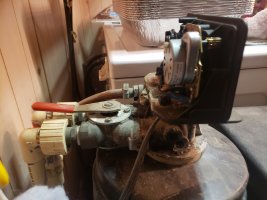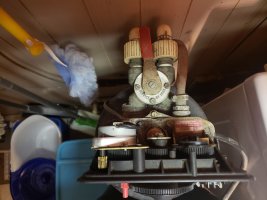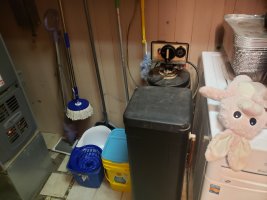Scout
Well-Known Member
The water softener in my house is old as dirt. It an old one that operates on a timer, and occasionally leaks. I'm thinking its time for a replacement, but as I don't like running out of salt I'm wondering if I should consider a whole house filter instead, or something else. I live in the country, on well water, and next to a farm field. Anything I google trying to find info on one vs the other results in some website trying to sell me something, and I don't want to read biased info. I figure since many of the people here are into water profiles, filtration, RO systems, etc, that this would be a good place to get info.
I don't have a water profile yet, but generally speaking, how much salt does a modern softener use? What are the advantages of filters vs softeners? Would it be usable for brewing, or should I go to the store for RO water? (Or just buy a small RO system?) What about salt free softeners?
I don't have a water profile yet, but generally speaking, how much salt does a modern softener use? What are the advantages of filters vs softeners? Would it be usable for brewing, or should I go to the store for RO water? (Or just buy a small RO system?) What about salt free softeners?







